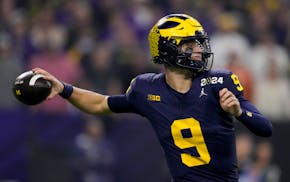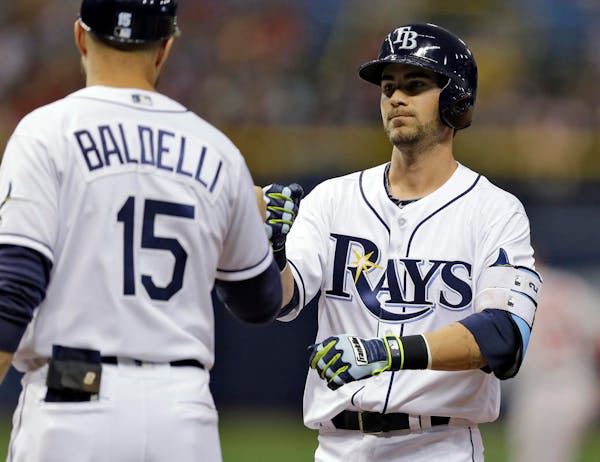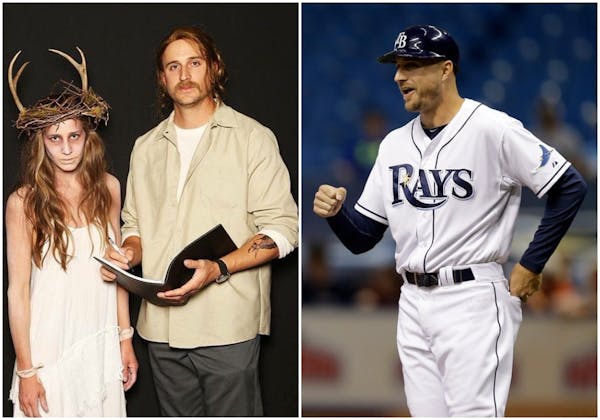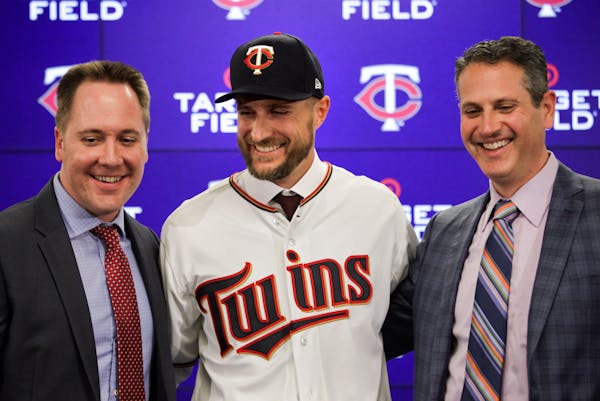The mystery is solved. What the Twins brain trust wanted in a big-league manager was a Phish-loving member of the Rhode Island Italian-American Hall of Fame.
They got their man Thursday, hiring Rocco Baldelli to replace Paul Molitor, a Springsteen-loving member of the Baseball Hall of Fame.
Heritage and musical tastes aside, we shouldn't be surprised by the kind of manager Derek Falvey and Thad Levine hired. The Twins' newish, new-age front office hired someone in their image.
Having worked in the Tampa Bay Rays' front office, Baldelli could have been the next Falvey or Levine. Instead, he became the latest young, inexperienced candidate to become a big-league manager, emulating Red Sox rookie skipper Alex Cora, who soon might be wearing a championship ring.
The Twins' analytics-driven front office did what most analytics-driven front offices are doing these days. They hired someone they believe can run a clubhouse, someone whose personality will enable him to translate analytics into player-speak.
Baldelli has never managed but by modern standards he is highly qualified. He might have been the only managerial candidate to interview with five of the six teams that began the autumn looking for a new manager.
Those who know him describe him as bright, confident, energetic and open-minded. At his introductory news conference Thursday at Target Field, he was thoughtful and engaging, making him sound a lot like Cora or Houston's A.J. Hinch, two of the current gold standards at the position.
And now that we've got the pleasantries out of the way, Baldelli will, like his predecessor, find his fate determined by whether Byron Buxton can learn to lay off breaking pitches in the dirt, and whether Miguel Sano can avoid running over the feet of police officers at 3 a.m.
Most competent baseball professionals can read a stat sheet, follow orders and run a game. If the transition from Molitor to Baldelli is to succeed, he will have to prove he can somehow improve key players who have faltered in the past year or two.
Meaning: Most of the Twins roster.
He is being hired because of his diverse background and because of his direct personality. If the Twins viewed Molitor as having a flaw, it might have been that as friendly and engaging as he could be, he wasn't always forceful in the clubhouse. Baldelli will be expected to perform better in that difficult-to-measure area.
Buxton requires a new hitting approach. Sano remains a mystery veering toward a sad ending. Max Kepler has stalled. And the Twins have a wave of talented youngsters on the way who might not possess as much raw ability as the crop that got Molitor fired.
Baldelli is being credited with helping the Rays win 90 games with a $68 million payroll. The Twins won 78 with a $115 million payroll. Of course, the ledgers might have been better balanced had the Twins not acquired two former Rays — Jake Odorizzi and Logan Morrison. Odorizzi underwhelmed. Morrison imploded. In both cases, the Rays' front office proved wiser than the Twins'.
The hiring of someone as inexperienced and presumably moldable as Baldelli offers an important reminder of the importance of big-league managers:
The good ones can steal a few wins a year for their team. The bad ones can ruin a pitching staff and clubhouse morale. It's much more important to avoid having a bad one than it is to have a great one, but at the going pay rates, having a great one would be nice.
I asked Baldelli, hours into his tenure, how much difference a manager can make.
"I bet a manager can make all the difference or no difference," Baldelli said. "I think it's hard to put your thumb on the value an individual brings to leadership. But when it's right, you know."
If Baldelli can avoid being a bad manager — a low but necessary bar — the Twins' current and future youngsters will determine the franchise's success.
And Baldelli's.
Jim Souhan's podcast can be heard at TalkNorth.com. On Twitter: @SouhanStrib. jsouhan@startribune.com

Souhan: Wolves fans made Game 1 special. Now bring on Game 2.

Souhan: Should Vikings even consider McCarthy in NFL draft?

Souhan: NAW erases Suns' lead, Game 1 advantage with big performance

Souhan: This is KAT's chance to prove Flip Saunders was right




